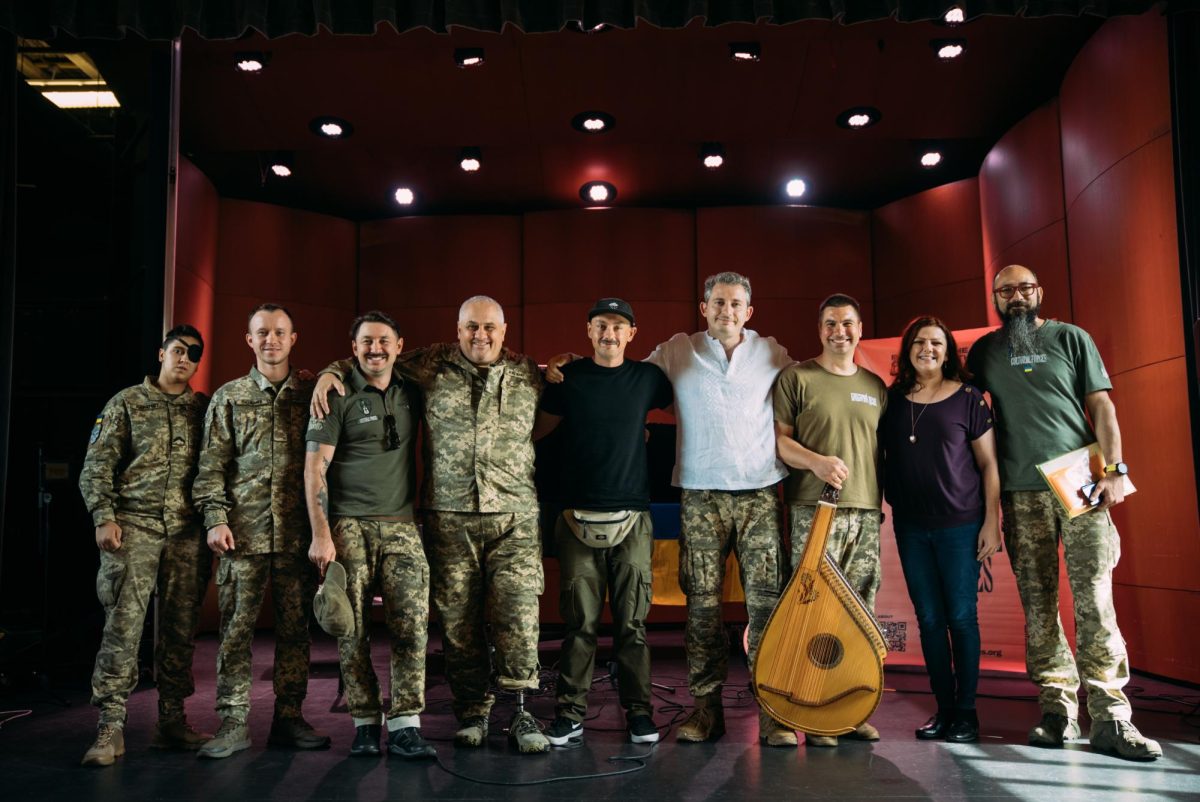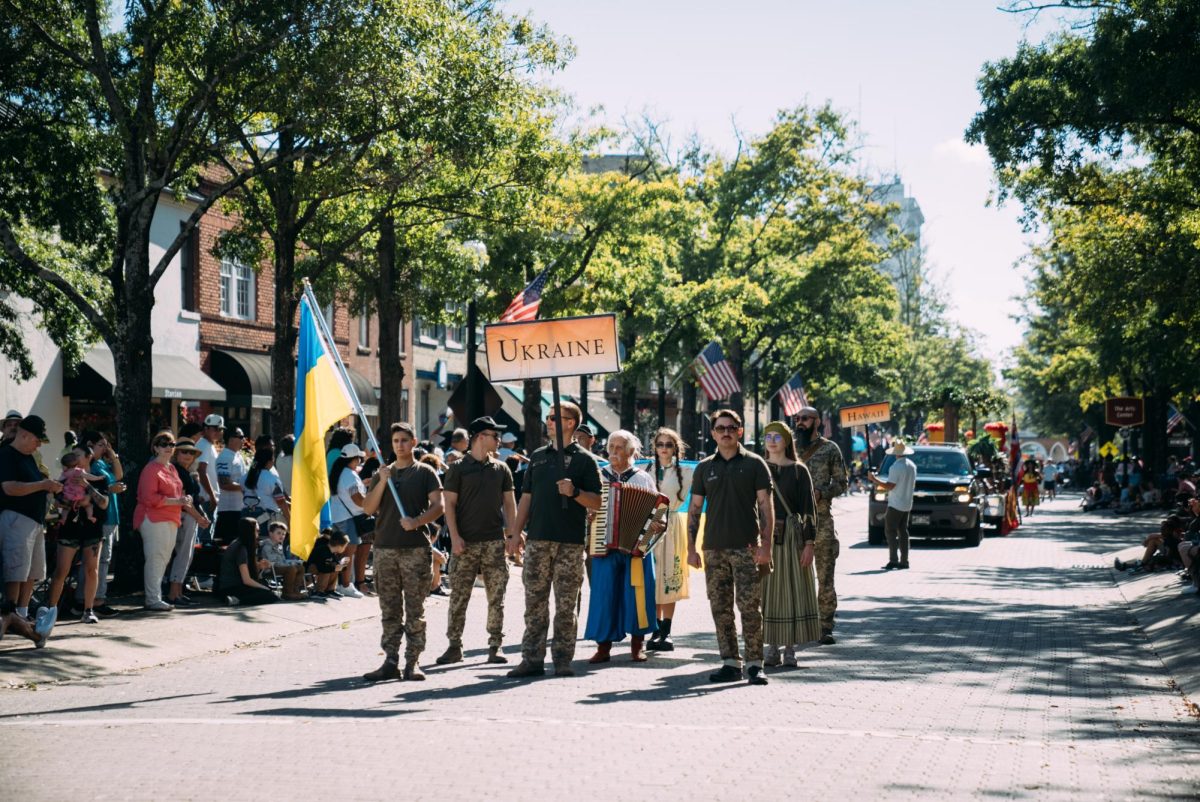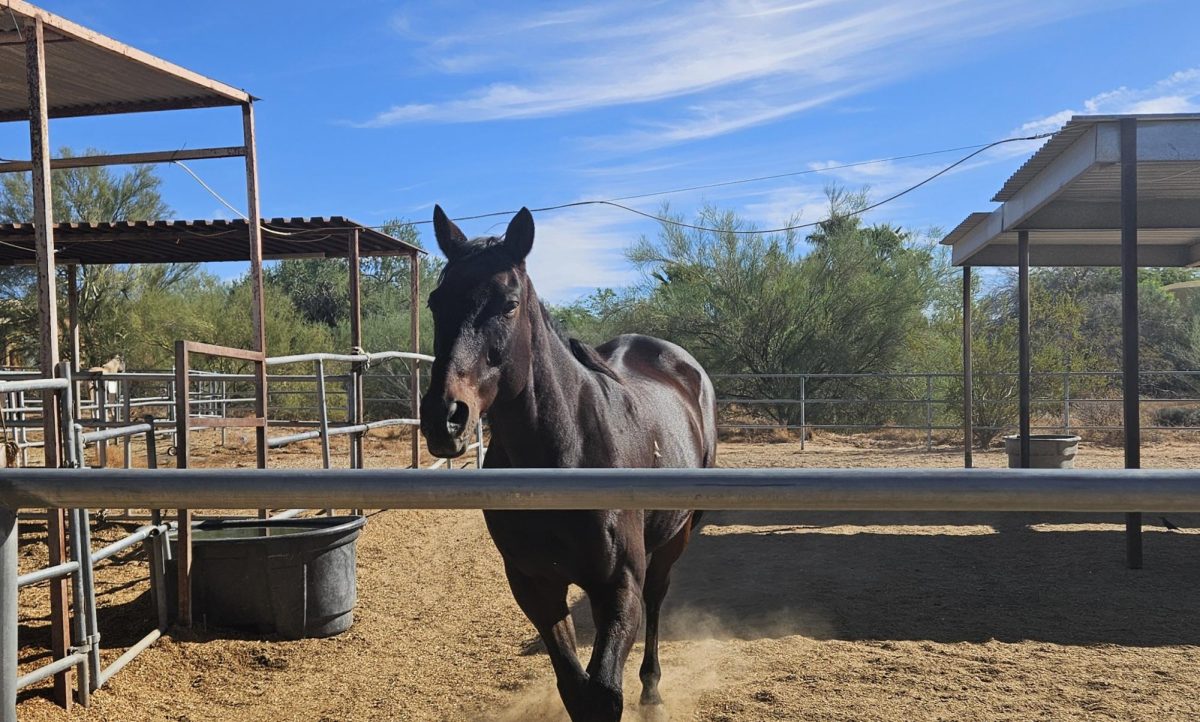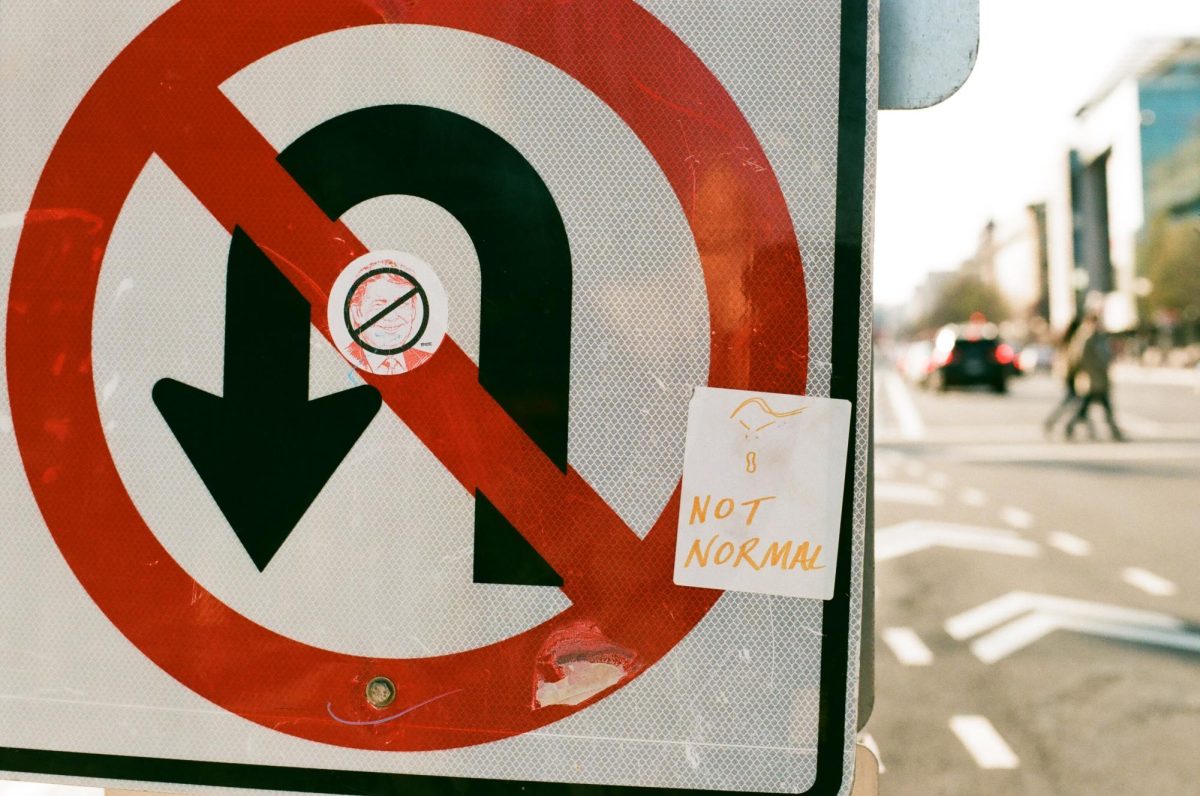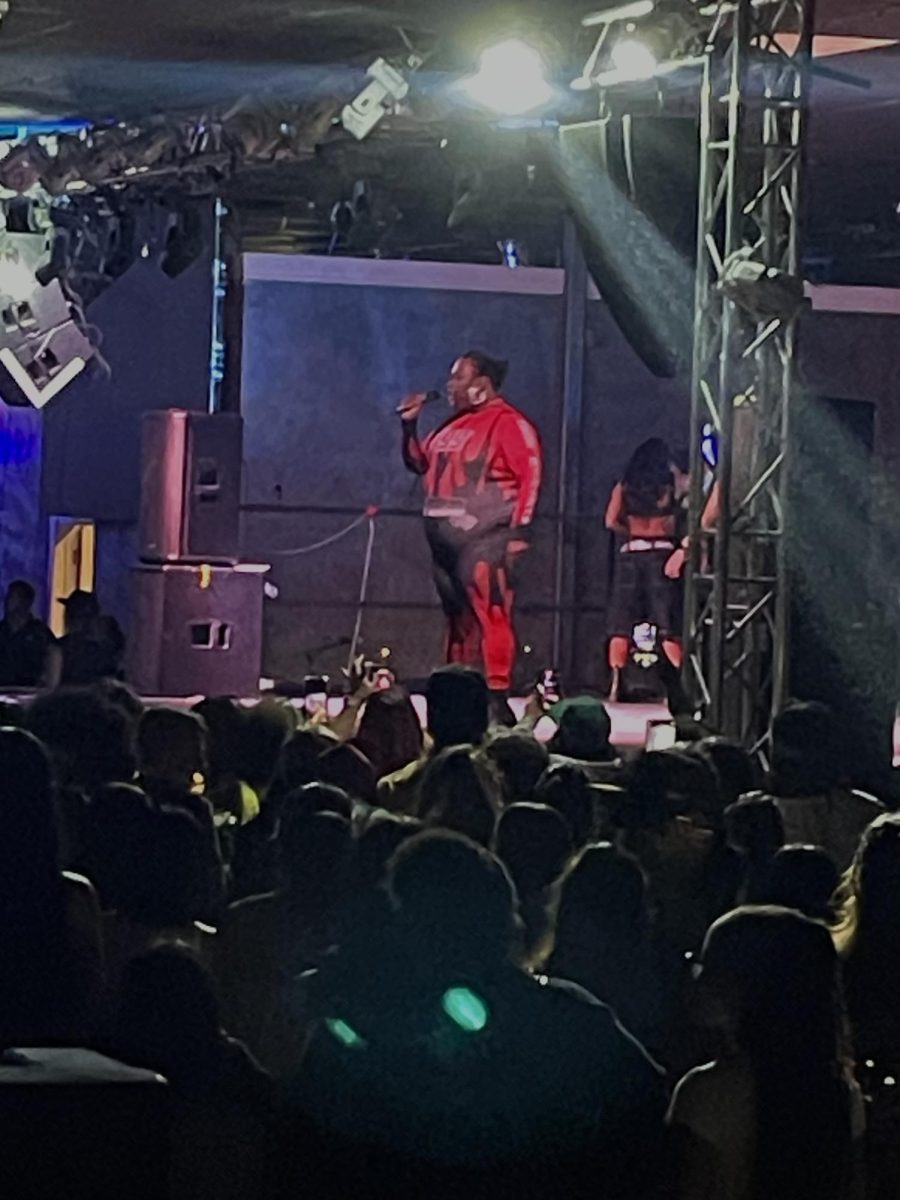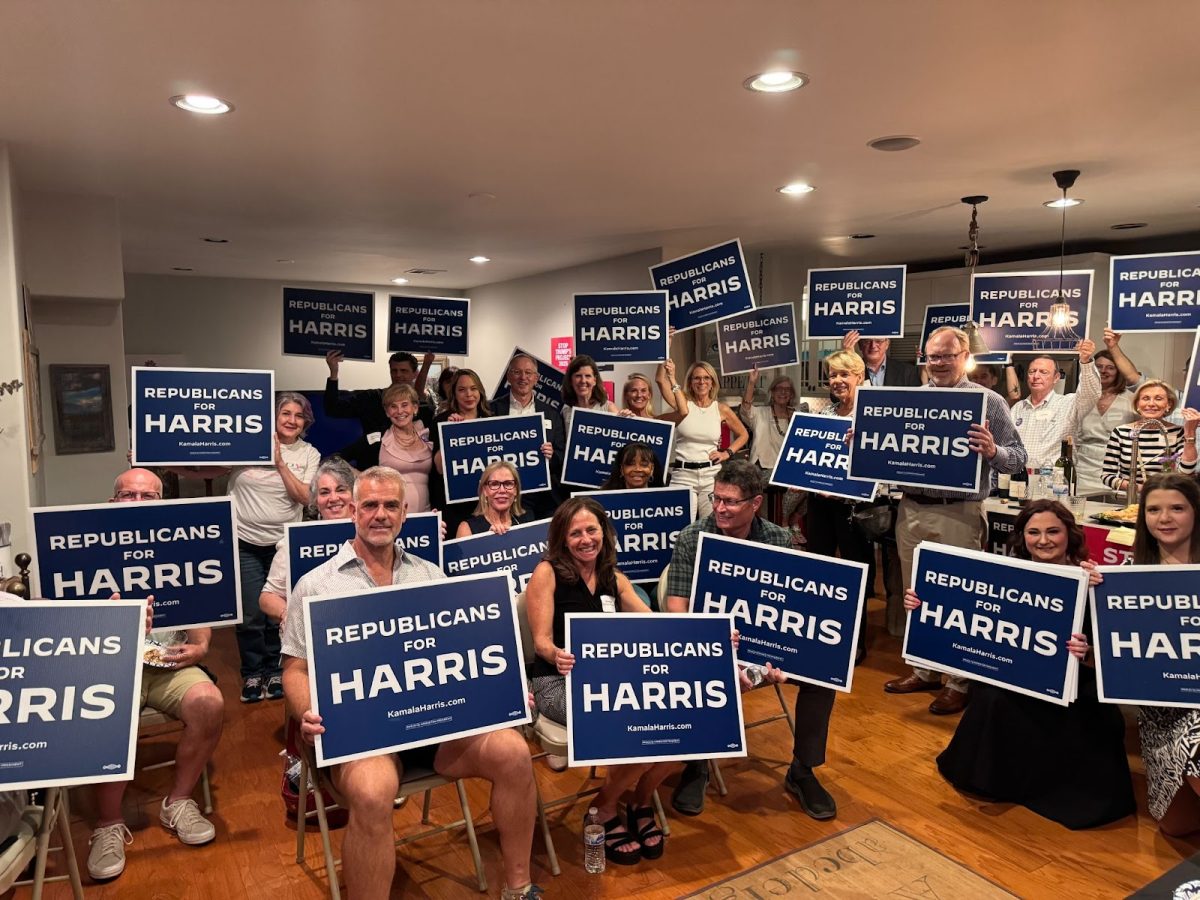In the dimly lit room of the ASU Kerr performing arts theater, a hush fell over the audience as Olha Rukavishnikova, senior soldier, lifted her violin, a defiant glint in her one remaining eye.
The first notes she drew echoed with resilience and pain, weaving a story of survival and determination that goes beyond music.
Wounded five times, losing an eye and suffering other severe injuries, Rukavishnikova was warned she might never hold a violin again.
But she was there in Scottsdale that night, bow in hand, on a U.S. tour with other soldiers and volunteers, determined to express gratitude to a nation that stands by their homeland in its darkest hours, as a violinist, conductor and symphonist.
The evening was more than a performance; it was a testament to the unyielding spirit of Ukraine, a message stitched together with strings, voices, and the heartbeats of those who have given everything.
From Ukrainian Idol to the Frontlines
For Mykolai Sierga, life changed overnight.
On February 24, 2022, while preparing for a concert, war erupted, his music was replaced by the echoes of conflict. Within 24 hours, Sierga put down his guitar and joined the Ukrainian Army.
“A few weeks after the war started, I noticed a huge problem; the psychological state of the soldiers, because everyone was stressed out,” Sierga said. “We didn’t have psychologists or chaplains in our military unit, so I asked my commander to perform for the soldiers. I told him that I knew the instruments and the right words and he said I could try, so I tried, and it was successful.”
From that moment, Sierga’s off-duty hours were devoted to lifting the spirits through music and poetry. Word spread fast and he was invited to other military units to inspire troops facing daily dangers. From that, Cultural Forces was born—a group of artists united by resilience and a shared mission.
Sierga told Northeast Valley News, “We began performing together, and right now we have about 80 artists, every day we put on 20 concerts.”
Their dedication carried them across borders.
In May and June, Cultural Forces came to the United States for 40 days, performing 110 concerts in a whirlwind tour. Now, they’ve returned, for a total of 135 concerts over 55 days without a moment of rest, focusing on venues across the Bible Belt and West Coast.
“One day of rest for us, is a lot of lives on the frontline. We need to do everything we can to help save their lives,” Sierga said. “To go further without pauses and stops, we need to have a lot of different motivations. We understand that Ukraine can have an amazing future, but for that we need to work a lot and educate ourselves and our people.”
Their mission is not just about performances but creating understanding.
“To have a real partnership with the U.S. we need to understand each other and find a deeper connection. Roots to roots,” Sierga said. “If we learn about the U.S. and we speak with different people, we will learn about them. The difference between the people from state to state is the way to the heart.”
The Bandura: A Whisper of Ukrainian History
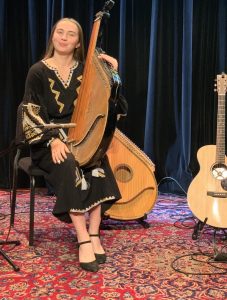
Liubov Shipiliuk, the 19-year old performer who has carried the soul of her people and nation since September 2023 singing and playing the bandura, as a Cultural Forces frontline volunteer. Since January, she has performed every single day, even for soldiers stationed 3km (about 1.8 miles) away from the frontline, often within earshot of air bombs.
When asked about the bandura, Shipiliuk’s eyes light up.
The traditional 62-string instrument, dating back to the 11th century, is deeply woven into Ukraine’s cultural history.
“On the frontline, I play historical songs about our Cossacks, a military unit from the 16th century,” she said. “This part of history is crucial for our country and identity.”
Shipiliuk’s collection spans eras, from the Ukrainian War of Independence (1917–1921) through World War II, when the Ukrainian Insurgent Army emerged to defend their homeland.
“I often sing songs from that period because it was such an important time for us,” she said. [The soldiers] feel honor because they are heroes.”
Shipiliuk believes that her music, songs, and words can heal. With a voice that bridges past and present, she reminded her audience that history, even in its most painful repetitions, carries lessons and pride.
Historically, bandura players were known as Kobzari, musicians who traveled with the army, bringing music as a form of solidarity and resilience.
Taras Stoliar, a soldier in the 59th Brigade, once played with the Naoni Orchestra before donning a military uniform. Now, he joins Shipiliuk, blending their talents to create music that resonates across battlefields and hearts.
A Melody from the Trenches
Mykhailo Oliinyk, a composer, pianist, singer, and soldier in the 59th Brigade, finds his deepest motivation in the resilience of those fighting on the frontlines.
“I am here to speak on behalf of those in the trenches,” Oliinyk said. “This is the greatest opportunity to tell people what is happening in Ukraine. It’s the kind of motivation that can bring victory faster.”
For Oliinyk, music is more than just an art form—it’s a lifeline. His songs are crafted to inspire and bring moments of peace to those facing the relentless strains of war. With pieces that honor family bonds and stir patriotism, he reaches soldiers in their most vulnerable moments.
“They [the soldiers] make videos and TikToks using my music to express their emotions,” he said.
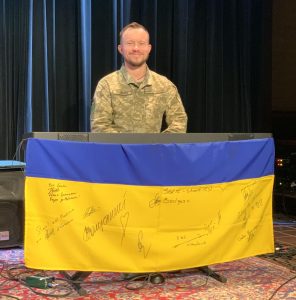
In just one year of service, he has performed over 600 concerts at the frontline, a testament to his unwavering commitment. And still, he serves, using every note and lyric to remind his fellow soldiers why they continue to fight—and who they’re fighting for.
From Country Boots to Combat Boots
Sasha Boole, country music singer, composer and writer, traded his country boots for combat boots in February to stand beside his fellow Ukrainians on the battlefield. Now a captain in the 22nd Separate Infantry Battalion, Boole was inspired to join the U.S. Tour of Gratitude to share music that bridges the cultural gap between Ukrainians and Americans.
“I started playing country music in 2013 and many people told me, ‘Man, you’re nuts, no one will listen to this in Ukraine because we’ve been behind the iron curtain of the Soviet Union for too long,’” Boole said.
Under Soviet rule, American music was forbidden; laws prohibited Western culture, casting a shadow over generations.
“That’s why we’ve been told for ages that we are part of the Great Russian, or Soviet Culture,” Boole said. “For me those two words together sound ridiculous–Russian and Soviet culture.”
Determined to reignite a sense of identity and heritage among his comrades, Boole brought these cultural traditions into the military, joining the fight with a rifle in his hands and a song in his heart. His music is a constant reminder that soldiers embody Ukraine’s culture and resilience.
Boole composed Nothing but Sand, an English song with a powerful message of unity and strength.
“Sometimes when you are dealing with things such as war, you may feel you are a tiny, helpless grain of sand,” Boole told Northeast Valley News.
“From the other side, if you take all those tiny, helpless grains of sand, we can build a wall that protects us, and be a sandstorm together if we act together. It’s always about a choice, do we want to be a helpless grain of sand, or a sandstorm and change everything?”
The Unyielding Voice
Yuri Ivaskevych, an opera singer renowned for his powerful voice, volunteered to defend his homeland when the call came. Trading concert halls for the battlefield, Ivaskevych joined the armed forces as a gunner and assistant grenade launcher in the 110th Brigade of the Zaporizhzhya Territorial Defense Forces.
His transition from artist to soldier was driven by a deep sense of duty, a commitment that would come to define his story.
Last summer, amid the relentless chaos of combat in the Zaporizhzhya region, an explosion changed his life forever. The blast claimed one of his legs, a loss that could have silenced the spirit of many. But Ivaskevych was not deterred. Despite the physical toll, his determination and passion for both his country and his craft endured.
His voice is now his weapon, a testament to resilience and a source of motivation for others who face similar hardships. When he takes the stage, the audience is reminded not just of the music, but of the strength it symbolizes—the strength of those who refuse to let war extinguish their spirits.
A Symphony of Courage
With every concert, every note, Cultural Forces transcend the boundaries of war and peace. Through their music, they extend gratitude, honor the past, and offer hope.
The seven performers are clearly not just gifted artists; together, they are a powerhouse, each one adding to a mosaic of resilience.
They hopefully remind us, that through shared culture and mutual human understanding, even in the darkest of times, we become richer with every new connection.


